
Le Département d'équité, d'éthique et de politiques (DEEP) de l’École de santé des populations et de santé mondiale de l'Université McGill vous souhaite la bienvenue à sa conférence annuelle de la recherche aux politiques - Lalonde@50 : Comment pouvons-nous faire avancer la promotion de la santé équitable ?
En 1974, Marc Lalonde, alors ministre canadien de la Santé et du Bien-être social, a publié un ouvrage qui fait autorité : Nouvelle perspective de la santé des Canadiens. Il proposait une vision holistique de la "santé" qui allait bien au-delà des réponses médicales traditionnelles aux affections aiguës et aux maladies chroniques. L'accent qu'il a mis sur les mesures préventives est largement salué comme étant à l'origine du concept de "promotion de la santé" et comme ayant jeté les bases d'un nouvel intérêt pour les déterminants sociaux de la santé, tant au Canada qu'à l'échelle internationale.
À l'occasion du 50e anniversaire de cette publication, notre conférence vise à réexaminer l'impact et l'héritage du rapport Lalonde à partir de multiples perspectives disciplinaires - et à regarder au-delà du rapport pour examiner comment la santé publique a évolué et vers quoi elle se dirige.
Lalonde@50 sera une occasion unique d'échanger avec des chercheurs, des étudiants, des responsables de la santé publique, d’organismes communautaires, et de décideurs pour discuter de l'histoire et de l'héritage du rapport révolutionnaire de Marc Lalonde, et pour évaluer de manière critique le chemin parcouru dans la construction d'une société qui produit de la santé, et non de la maladie. La conférence comprendra un mélange de présentations et de discussions, partageant les dernières preuves, les meilleures pratiques, et engageant les orateurs et les participants à la conférence à proposer et à évaluer la faisabilité de stratégies concrètes pour faire bouger l'aiguille de la promotion de la santé équitable. Lalonde@50 offrira également à une relève interdisciplinaire un apprentissage expérientiel pour passer de la recherche à la politique et comprendra des présentations de projets politiques par des stagiaires de premier et de deuxième cycle du DEEP.
Les conférencières de prestige confirmées sont (en ordre d’apparition au programme):
Les organisations partenaires incluent l'Institut de la santé publique et des populations des IRSC, le Centre de collaboration nationale sur les politiques publiques et la santé, la Centre de collaboration nationale des déterminants de la santé, la Direction régionale de santé publique, et l’Association pour la Santé Publique du QC l'événement est parrainé par l'Institut d'études canadiennes de McGill et soutenu en partie grâce au financement du Programme des chaires de recherche du Canada.
The Department of Equity, Ethics, and Policy (DEEP) of the McGill School of Population and Global Health welcomes you to our annual research to policy conference - Lalonde@50: How can we move the needle on equitable health promotion?
In 1974, Marc Lalonde, then Canadian Minister of Health and Welfare, released the authoritative A New Perspective on the Health of Canadians. He proposed a wide-ranging, holistic view of “health” that went far beyond traditional medical responses to acute conditions and chronic illnesses. His emphasis on preventive measures is widely hailed as ushering in the concept of “health promotion” as well as laying the foundations for a new interest in the social determinants of health both within Canada and internationally.
On the 50th anniversary of the publication of A New Perspective, this conference seeks to re-examine the impact and legacy of the Lalonde Report from multiple disciplinary perspectives - and look beyond the report to consider how public health has evolved and where it is headed.
Through a mix of keynote plenary presentations, break-out discussions, and a set of “policy workshops,” this conference will share the latest evidence and engage speakers and participants in identifying what it will take to address the causes of homelessness and exploring solutions to prevent it.
Lalonde@50 will be a unique opportunity to engage with researchers, students, public health, community, and policy leaders to discuss the history and legacy of Marc Lalonde’s ground-breaking report, and to critically assess how far we have come in building a society that produces health, not sickness, The conference will feature a mix of keynote and panel presentations and discussions, sharing the latest evidence, best practice, and engage speakers and conference participants in proposing and assessing the feasibility of concrete strategies for moving the needle on equitable health promotion. Lalonde@50 will also engage future scholars from across disciplines in a unique experiential learning opportunity in moving research to policy and include policy project presentations by DEEP undergraduate and graduate trainees.
Confirmed Keynote speakers include (in order of appearance in the program):
The event is being co-hosted by the CIHR Institute of Population and Public Health, the National Collaborating Centre for Healthy Public Policy, the National Collaborating Centre for Determinants of Health, the Montreal Regional Public Health Department, and the Association pour la Santé Publique du QC, and is sponsored by the McGill Institute for the Study of Canada and supported in parts thanks to funding from the Canada Research Chairs Program.
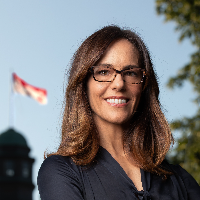
Amélie Quesnel-Vallée
Directrice et Professeure titulaire, Département d’équité, éthique et politiques
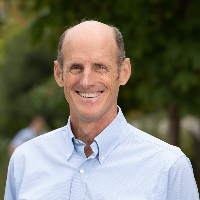
Tim Evans
Directeur, École de santé des populations et de santé mondiale
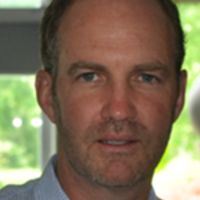
David Wright
Professeur d'histoire, Université McGill
Remarques d’introduction sur l'évolution de la promotion de la santé par l'honorable Dr Carolyn Bennett, ambassadrice du Canada au Danemark et ancienne ministre canadienne de la santé.

Amélie Quesnel-Vallée – Modératrice
Directrice et Professeure titulaire, Département d’équité, éthique et politiques
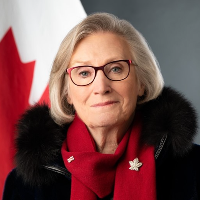
L'honorable Dr. Carolyn Bennett
Ambassadrice du Canada au Danemark
Ce panel place le rapport Lalonde dans le contexte historique plus large de la promotion de la santé, des catégories médicales et de la politique de l'assurance-maladie canadienne.
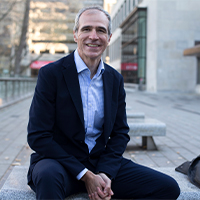
Stéphan Gervais - Modérateur
Coordonnateur scientifique, Programme d’études sur le Québec, et Centre de recherches interdisciplinaires en études montréalaises

George Weisz
Professeur, Études sociales de la médecine, Université McGill Maladies chroniques, médecine sociale et rapport Lalonde

Catherine Carstairs
Professeure d'histoire, Université de Guelph“Habits insidieux”: La vision morale du rapport Lalonde dans une perspective historique
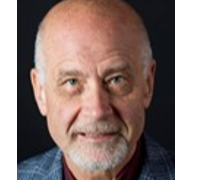
Greg Marchildon
Professeur Emeritus, École Dalla Lana de Santé Publique, Université de Toronto Lalonde et la politique fiscale de l'assurance-maladie au Canada
Ce panel examine l'héritage et la mise en œuvre du rapport Lalonde, en particulier en ce qui concerne les initiatives qu'il a identifiées comme prioritaires, ainsi que celles qu'il a discrètement omises.

Magda Fahrni – Modérateur
Professeure, Département d'histoire, Université du Québec à Montréal

David Wright
Professeur d'histoire, Université McGill Priorités suite au rapport Lalonde

Christabelle Sethna
Professeure, Faculté des sciences sociales, Université d'Ottawa“Nous n'agissons pas sur la base des informations dont nous disposons déjà" : La santé génésique et le rapport Lalonde

Alex Mold
Professeure d'histoire de la santé publique, London School of Hygiene & Tropical Medicine Définir le public dans la santé publique après Lalonde
Discours et discussion avec la directrice régional de la santé publique de Montréal et le directeur national de la santé publique du Québec sur l'avenir de la santé publique à Montréal et au Québec.

Amélie Quesnel-Vallée – Modératrice
Directrice et Professeure titulaire, Département d’équité, éthique et politiques

Dre. Mylène Drouin
Directrice régionale de santé publique de Montréal
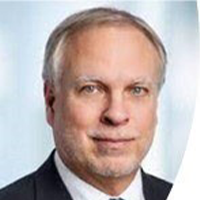
Dr. Luc Boileau
Directeur national de santé publique du Québec
Cocktail et présentations d'affiches par les stagiaires de la recherche aux politiques publiques du département DEEP.

Amélie Quesnel-Vallée
Directrice et Professeure titulaire, Département d’équité, éthique et politiques
Présentation et discussion avec la nouvelle directrice scientifique de l'Institut de la santé publique et des populations, qui partagera sa vision de l'avenir de la santé publique et de la santé des populations.

Katherine Frohlich
Directrice scientifique, Institut de la santé publique et des populations des Instituts de recherche en santé du Canada
Présentations et discussions en panel explorant les problèmes persistants dans les efforts de promotion de la santé équitable, et mettant en lumière les questions émergentes.

Val Morrison – Modératrice
Conseillère scientifique, Centre de collaboration nationale sur les politiques publiques et la santé

Sume Ndumbe-Eyoh
Directrice, Black Health Education Collaborative, École de santé publique Dalla Lana
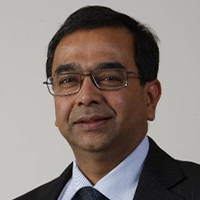
Srinath Reddy
Professeur honoraire, Fondation pour la santé publique de l'Inde
Des chercheurs et des responsables communautaires présentent des stratégies concrètes pour faire avancer la promotion de la santé, suivies d'évaluations de faisabilité par des experts politiques nationaux et internationaux.

Nick King – Modérateur
Professeur agrégé, Département d’équité, éthique et politiques
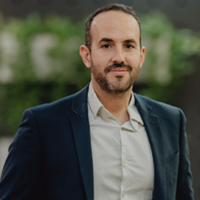
Thomas Bastien
Directeur général, Association pour la Santé Publique du Québec

Johanne Elsener
Présidente, Santé Urbanité

Kate Mulligan
Directrice principale et conseillère stratégique, Institut canadien de prescription sociale
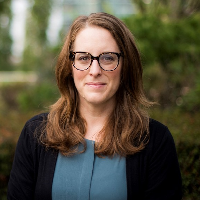
Lindsey Richardson
Professeure agrégée de sociologie, Université de la Colombie britannique
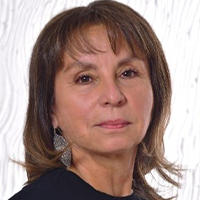
Jeanette Vega
Médecin et pédiatre, Université du Chili
Les tables de discussion des participants proposent des stratégies clés dans tous les secteurs et toutes les disciplines, afin de faire avancer la promotion équitable de la santé.

Amélie Quesnel-Vallée – Modératrice
Directrice et Professeure titulaire, Département d’équité, éthique et politiques
Des leaders nationaux et internationaux discutent des innovations prometteuses pour faire avancer la promotion d'une santé plus équitable.

Maureen O’Neil OC - Modératrice
Présidente, Water Aid International

Gaynor Watson-Creed
Doyen associé, Servir et engager la société, Université Dalhousie
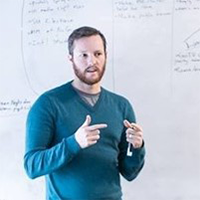
Justin Williams
Directeur associé, politique et développement, Institut Tamarack
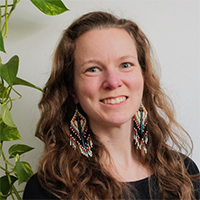
Sonia Périllat-Amédée
Coordinatrice de recherche, Tahatikonhsontóntie' Environnement réseau de recherche en santé autochtone du Québec

David Buckeridge
Professeur d'épidémiologie et de biostatistique à l'Université McGill

Amélie Quesnel-Vallée – Modératrice
Directrice et Professeure titulaire, Département d’équité, éthique et politiques

Amélie Quesnel-Vallée
Chair and Professor, Department of Equity, Ethics and Policy

Tim Evans
Director, School of Population and Global Health
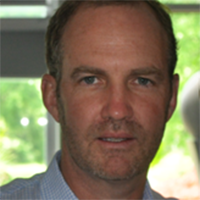
David Wright
Professor of History, McGill University
Introductory remarks on the evolution of health promotion by The Honourable Dr. Carolyn Bennett, Ambassador of Canada to Denmark and Former Canadian Minister of Health.

Amélie Quesnel-Vallée – Chair
Chair and Professor, Department of Equity, Ethics and Policy
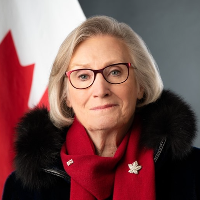
The Honourable Dr. Carolyn Bennett
Ambassador of Canada to Denmark
This panel places the Lalonde Report in the broader historical context of health promotion, medical categories and the politics of Canadian Medicare.

Stéphan Gervais - Chair
Scientific Coordinator, McGill Quebec Studies Program and the Centre for Interdisciplinary Research on Montreal

George Weisz
Professor, Social Studies of Medicine, McGill UniversityChronic Disease, Social Medicine and the Lalonde Report

Catherine Carstairs
Professor of History, University of Guelph “Insidious Habits”: The Moral Vision of the Lalonde Report in Historical Perspective

Greg Marchildon
Professor Emeritus, Dalla Lana School of Public Health, University of TorontoLalonde and the Fiscal Politics of Canadian Medicare
This panel examines the legacy and uptake of the Lalonde Report, particular in terms of the initiatives that it identified as priorities, as well as those which it quietly omitted.

Magda Fahrni - Chair
Professor of History, University of Quebec in Montreal

David Wright
Professor of History, McGill UniversityPriorities in the Wake of Lalonde

Christabelle Sethna
Professor, Faculty of Social Sciences, University of Ottawa “We are failing to act on the information we already have”: Reproductive health and the Lalonde Report

Alex Mold
Professor of Public Health History, London School of Hygiene & Tropical Medicine Defining the Public in Public Health after Lalonde
Keynote address and discussion with Montreal’s Regional Director of Public Health and the Quebec National Director of Public Health on the future of public health in Montréal and Québec.

Amélie Quesnel-Vallée – Moderator
Chair and Professor, Department of Equity, Ethics and Policy

Dr. Mylène Drouin
Regional Director of Public Health for Montréal

Dr. Luc Boileau
Quebec National Director of Public Health
Cocktail & Poster presentations by DEEP Research to Policy Interns

Amélie Quesnel-Vallée
Chair and Professor, Department of Equity, Ethics and Policy
Keynote presentation and discussion with the new Scientific Director of the Institute of Population and Public Health, sharing her vision for the future of public and population health.
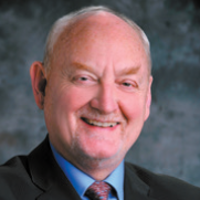
Professor John W. Frank MD, CCFP, MSc, FRCPC, FCAHS, FFPH, FRSE, LLD
Moderator Professorial Fellow, University of Edinburgh; Professor Emeritus, University of Toronto

Katherine Frohlich
Scientific Director, Institute of Population and Public Health, Canadian Institutes of Health Research
Panel presentations and discussion exploring persisting problems in efforts towards equitable health promotion, and highlighting emerging issues. Panelists will explore strategies for reducing racial inequalities in public health and call for multi-disciplinary public policy and equitable health systems locally and globally.

Val Morrison
Moderator Scientific Advisor, National Collaborating Centre for Healthy Public Policy

Sume Ndumbe-Eyoh
Director, Black Health Education Collaborative, Dalla Lana School of Public Health

Srinath Reddy
Honorary Distinguished Professor, Public Health Foundation of India
Research and community leaders “pitch” concrete strategies for moving the needle on health promotion, followed by feasibility assessments by global and national policy experts. Join us to learn about the promise of social prescription, illness prevention, nature prescribing, and social policy experimentation.

Nick King – Moderator
Associate Professor, Department of Equity, Ethics and Policy

Thomas Bastien
Director General, Association pour la Santé Publique du Québec

Johanne Elsener
President, Santé Urbanité

Kate Mulligan
Senior Director & Strategic Advisor, Canadian Institute for Social Prescribing
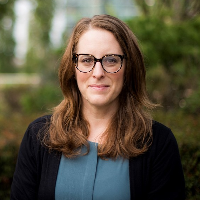
Lindsey Richardson
Associate Professor of Sociology, University of British Colombia

Jeanette Vega
Medical Doctor and Pediatrician, University of Chile
Participant table discussions proposing key strategies across sectors and disciplines, for moving the needle on equitable health promotion.

Amélie Quesnel-Vallée – Moderator
Chair and Professor, Department of Equity, Ethics and Policy
Blue-sky thinking by national and global leaders on innovations in public health. Panelists will share promising policy and practice strategies for reducing racial inequalities, increasing population and community wellbeing and belonging, building Indigenous research capacity, and the successful use of AI technologies.

Maureen O’Neil OC - Moderator
Chair, Water Aid International
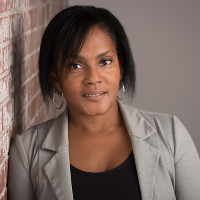
Gaynor Watson-Creed
Associate Dean, Serving and Engaging Society, Dalhousie University

Justin Williams
Associate Director, Policy and Development, Tamarack Institute

Sonia Périllat-Amédée
Research Coordinator, Tahatikonhsontóntie' Quebec Network Environment for Indigenous Health Research

David Buckeridge
Professor of Epidemiology and Biostatistics, McGill University

Amélie Quesnel-Vallée – Moderator
Chair and Professor, Department of Equity, Ethics and Policy